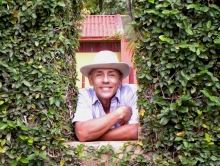Taller Sobre el Carbono Profundo
La semana pasada (del 17 al 22 de febrero) tuve la oportunidad de participar en el primer taller de científicos en etapas tempranas de su carrera interesados en el estudio de las reservas de carbono en las profundidades de La Tierra o el carbono profundo. El taller fue auspiciado por el Observatorio de Carbono Profundo o DCO (por sus siglas en Inglés). El mismo reunió 40 científicos de 15 países envueltos en los diferentes aspectos del DCO: Vida en las Profundidades (Deep Life), Energía en las Profundidades (Deep Energy), Reservas y Flujos (Energy and Fluxes) y Física y Qímica Extrema (Extreme Physics and Chemistry).











